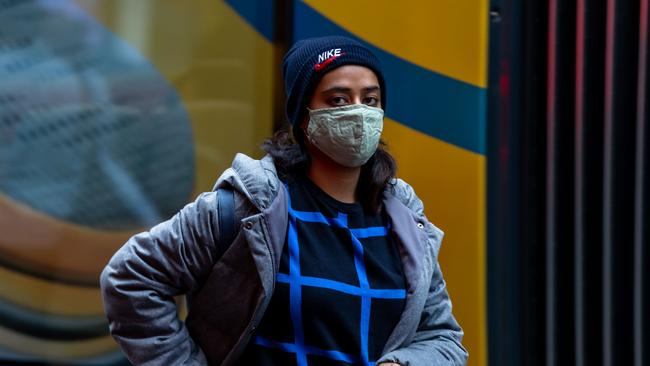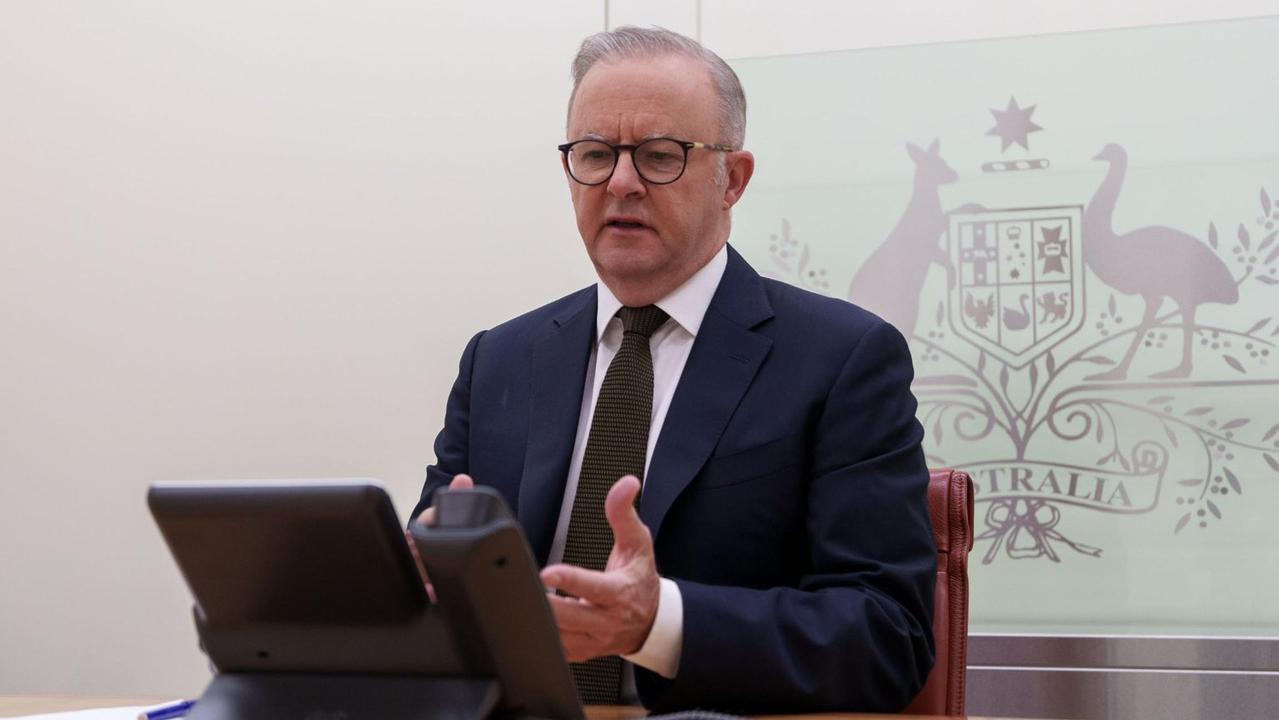Covid laws ‘excessive power’, says Dan Tehan
A former Liberal cabinet minister questions his own government’s pandemic legislation which afforded it unprecedented powers.

A former Liberal cabinet minister has questioned his own government’s pandemic legislation, saying parliament was “asleep at the wheel’’ when it passed controversial laws allowing the government to force people into quarantine, wear masks and even be vaccinated against their will.
Former trade minister Dan Tehan said the Biosecurity Act, which empowered the government throughout the Covid pandemic in 2020 and 2021, should be reviewed by a joint standing committee of both houses of parliament.
“We need to have a thorough investigation as to whether the powers that are bestowed on the health minister, and the health minister alone, are warranted, whether there should be more checks and balances put in place, whether there should be a role for the broader cabinet or some parliamentary oversight,’’ Mr Tehan said.
The Biosecurity Act 2015, introduced by the previous Coalition government, has come under fire for bestowing unilateral powers on the health minister.
But public debate has focused on the decision of former prime minister Scott Morrison to secretly swear himself in as health minister to mitigate some of the responsibility that fell to former health minister Greg Hunt.

The original bill was introduced by former agriculture minister Barnaby Joyce, presented to parliament as a routine update to quarantine laws, and the explanatory memorandum and second reading speech focused heavily on agriculture, rather than the human health implications.
Mr Tehan said the parliament that passed the legislation “must have been asleep at the wheel, and I include myself in that”".
“It is obviously an Act which is to be used in extreme circumstances but it still warrants us making sure there are appropriate checks and balances as to how it is used,’’ he said.
The legislation was reviewed by the Senate Rural and Regional Affairs Committee in late 2014, but passed parliament with little amendment and no fanfare in May 2015, supported by Labor.
“I believe that this Act uses excessive power, therefore we need to examine whether it could be used as an overreach and whether there are the proper checks and balances in place to be able to stop an overreach,’’ Mr Tehan said.
Asked if an overreach had already occurred, he said “that is something which is obviously open to debate. Governments both at the federal level and state and territory had to deal with the pandemic as they best saw fit”.
“But what I think alarmed all of us was the potential powers that the Act gives and the potential lack of oversight in the granting of those powers, that’s what needs to be examined.’’
David Carter, from the Faculty of Law at the University of Technology Sydney, said the Act and related laws represented one of the most significant sources of coercive power available to the executive – ministers and public servants – rather than the courts.

He said those powers included the government being able to order people to provide contact information for any individual they had been in close contact with, to advise of their health status, to be isolated at home, to be banned from visiting specific places or coming into proximity with certain classes of individuals.
The laws also provided powers for the government to order people to wear specific clothing or equipment, to be decontaminated, to undergo medical examination and diagnostic testing, to be vaccinated or treated, and to take medication or be isolated at a specified medical facility.
“Put another way, these powers mean that the government can, if it chooses, make orders that seriously restrict people’s freedom of movement and association, order isolation or detention, or direct people to undergo medical examination, vaccination or even medical treatment,’’ Dr Carter said. “These are very significant powers.
Dr Carter said some of the powers used by the federal or state governments might well be justified on clinical, public health and biosecurity grounds.
“However, without greater detail, transparency and accountability, the public, interested parties and those subject to these coercive powers will be unable to gauge the lawfulness or
justifiability of this exercise of executive power,’’ he said.
Business backs review of extraordinary powers
Business leader Innes Willox supported Mr Tehan’s call for the legislation to be reviewed, saying Australia’s “rational and well thought out national pandemic response plan’’ had been “immediately discarded when the pandemic emerged.’’
“At the time, those at the front end of the economy were surprised that well-worn checks and balances, democratic processes, proportionate responses and considered judgment were so casually cast aside, causing the massive economic, health and social damage we are still seeing unfold,’’ Mr Willox, chief executive of the Australian Industry Group, said.
“One of the key questions for the inevitable Royal Commission or inquiry into our national Covid response was the impact and use of the Biosecurity Act.
“In retrospect, it seems hard to believe that legislation designed to protect our agriculture sector from pests could be used to close our borders, shut down big parts of our economy and put unfettered power in the hands of one person, no matter how well intentioned they might have been.
“It seems to have been the fault of either poor legislative drafting or parliament not understanding the potential consequences of the Act they passed in 2015.
“At very least, a tightening of the legislation should be a priority. We should never be in a position in a democracy where one person can wield so much theoretical and real power.’’
Queensland LNP Senator Matt Canavan agreed the laws should be reviewed.
“It was a bit of a shock to many of us that there didn’t need to be any Parliamentary debate to impose such massive restrictions and removal of rights on Australians,’’ he told Sky News.
“I welcome the fact that Dan Tehan is self-reflecting here, we all should. I admit that in 2020 when I supported lockdowns I think some of those lockdowns were too severe. I think, in reflection, we could have done things differently. That’s right and proper that we do that.
“It would be great if more politicians had the confidence to say ‘hey I’m not perfect I sometimes get it wrong’.’’
Agriculture Minister Murray Watt has flagged making changes to the emergency health powers that are embedded in the legislation.
Barnaby Joyce rejected the suggestion from Mr Tehan that the the details of the Bill were not clear.“I knew exactly what the Bill was about. Perhaps others were asleep at the wheel,’’ he said.







